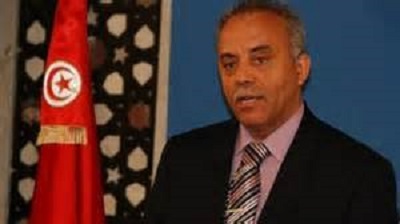
Habib Jemli faces the challenge of creating a ruling coalition in economically troubled Tunisia after the moderate Islamist Ennahda party, which took most seats in last month’s election, tapped him as prime minister on Friday.
The birthplace of the Arab Spring, Tunisia is the only country to achieve a peaceful transition to democracy following the 2011 revolts that swept autocrats from power across North Africa and the Middle East.
But many governments since then have failed to resolve economic problems, including high inflation and unemployment that has bred discontent, especially among young people.
“It will be last chance for the revolutionary process,” Jemli said. “Tunisians were patient enough and the youth are frustrated. It is time they can see hope and light at the end of the tunnel.”
Priorities will be to combat price inflation and to improve Tunisians’ living conditions and public services.
Unemployment stands at about 15 per cent due to weak growth, low investment, and high inflation of nearly 7 pct. Impatience is rising among lending institutions such as the International Monetary Fund that have helped keep Tunisia afloat and are pressing for economic reforms.
Those problems, alongside deteriorating public services and a public perception of government corruption, drove voters to reject the political establishment in the elections.
Jemli, who is close to the Ennahda party, started on Monday consultations with political parties to discuss the government programme and to choose ministers. He expects this to take weeks.
Jemli served as a junior minister in the first government formed in late 2011 after the fall of autocrat Zine El-Abidine Ben Ali to a pro-democracy uprising. Ennahda also led that government.
Any new government will need the support of at least two other parties to command even the minimum parliamentary majority of 109 seats needed to pass legislation.
If Jemli cannot form a government within two months, the president can ask another to try. If that fails and the deadlock persists, there will be another election.
“Instead of political disputes over positions and chairs, emphasis should be placed on economic reforms including reforms of state firms facing major difficulties,” Jemli said. -Reuters






